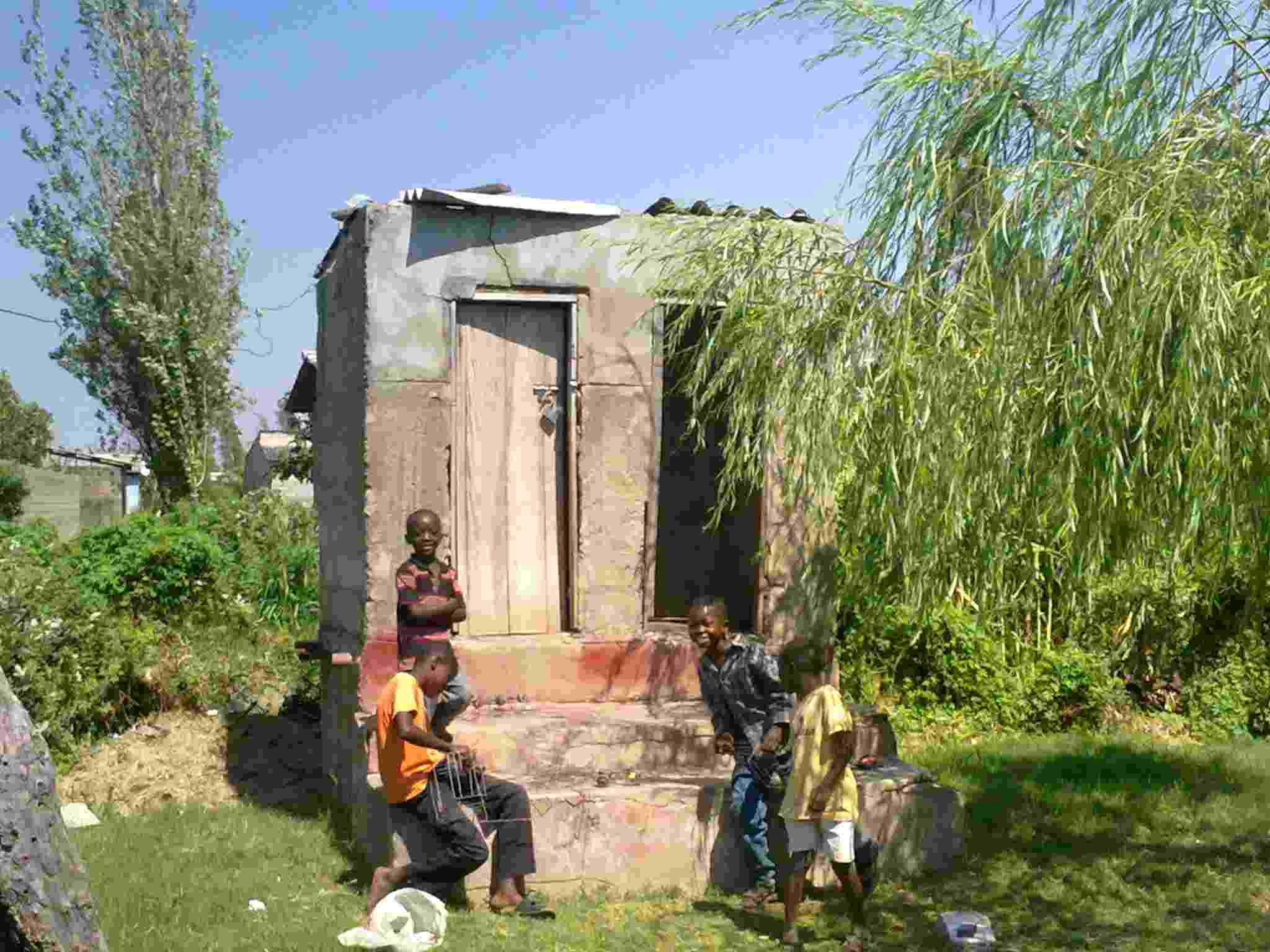The next generation and hygienic living
Reflections for World Toilet Day
18 November 2021
Jack Charnley
India is proactively working to reduce open defecation, a practice that is an affront to human dignity, endangers community health through the spread of waterborne disease, and puts women and girls at risk of gender-based violence. Between 2014-2019, Prime Minister Modi’s government initiated one of the world’s largest sanitation programmes: Swachh Bharat Abhiyan (Clean India Mission). The project engaged government, households, and the private sector to facilitate the construction of 110 million toilets with the aim of ending open defecation (Regan and Suri, 2019); the World Health Organisation estimated the project prevented over 300,000 deaths as a result of diarrhoea and malnutrition.


Children outside a pit latrine in Zambia
However, building toilets is not a guarantee that they will be used. One reason why WASH interventions are often ineffective is ‘their requirement for high user adherence to consistent sustained behaviour change’ (Humphrey, 2019). A latrine may be constructed but that is only half the job – those receiving it may not perceive toilet use to be more hygienic, safer, or more pleasant than open defecation. Coffey and Spears, speaking in the context of rural India, attribute the low rate of latrine use to socio-cultural factors such as ritual purity. Moreover, global rates of open defecation could be higher than is reported because all households with toilets, even those that lie unused, are assumed not to practise open defecation in the data (Caruso et al., 2019).
One possible way to generate sustained behaviour change in the long-term is to look to future generations and to equip school children with the understanding and knowledge to live healthy lives, particularly relating to sanitation and toilet use. The school environment has the potential to act as a place where children, regardless of the opportunities they may have at home, can learn correct toilet use or to practise handwashing with soap.
Children spend a significant part of their day at school where WASH services can improve educational opportunities and decrease the potential for disease transmission. (Chatterley et al., 2018)
The Capability, Opportunity, Motivation behaviour model is a theoretical framework of behaviour change (Michie et al., 2011). It asserts that if these three domains are incorporated, then a behavioural intervention (e.g. children washing their hands with soap) could be successful. The authors define the three components as follows:
- Capability is defined as the individual's psychological and physical capacity to engage in the activity concerned…
- Motivation is defined as all those brain processes that energize and direct behaviour… It includes habitual processes, emotional responding, as well as analytical decision-making...
- Opportunity is defined as all the factors that lie outside the individual that make the behaviour possible or prompt it.
There are several factors which must be in place to support school children in developing the capability, opportunity, and motivation they need to adopt hygienic behaviours such as using toilets correctly and washing their hands with soap. First, and most obviously, they need adequate school WASH facilities. If there is no running water, or no soap, or the toilets are not regularly maintained to a safe standard, children do not have the opportunity to learn and adopt hygienic behaviour. Given the evidence that 'constructing new facilities may pose a risk to children in the absence of sufficient hygiene behaviour change’ (Greene et al., 2012), infrastructural interventions need to be matched by educational awareness raising.


Junior grade class activity (Government of NCT of Delhi, CC BY-SA 4.0 via Wikimedia Commons)
Second, teachers play a hugely significant role as WASH models. When teachers are motivated and enthusiastic in supporting children through activities like group handwashing and hygiene education, children can build the capability and motivation they need to adopt hygienic behaviours and positive outcomes are more likely (La Con et al., 2017; Harahap et al., 2018). COVID-19 has severely hindered the ability of teachers to motivate and interact with students - primary schools in New Delhi only reopened in early November 2021 and we know that hygienic behaviours, like regular handwashing with soap, are fundamental in the fight against the pandemic.
In theory, effective WASH behaviour change programmes in schools can extend beyond the confines of the school compound. Although children should not be burdened with the responsibility of generating behaviour change, it is possible to support them in bringing their knowledge, skills, and attitudes that they learn in school into the home environment. With the right facilities, support, and resources in place at school, including the involvement of family through parent-teacher associations, children can naturally become change agents and help foster hygienic living within their homes and communities (Bresee et al., 2016).
Everyone’s health is threatened when people in communities do not have safe toilets or access to WASH facilities, or an understanding of the importance of personal hygiene practices. Large-scale programmes like the Clean India Mission cannot achieve their full potential through infrastructure alone. Poor sanitation contaminates drinking water sources, rivers, beaches, and food crops, spreading disease among the wider population and threatening the progress of SDG 6. Now that schools are reopening in India and across the world, the next generation could be equipped to learn and adopt hygienic, safe WASH practices, to drive change that moves away from open defecation and other damaging behaviours.




